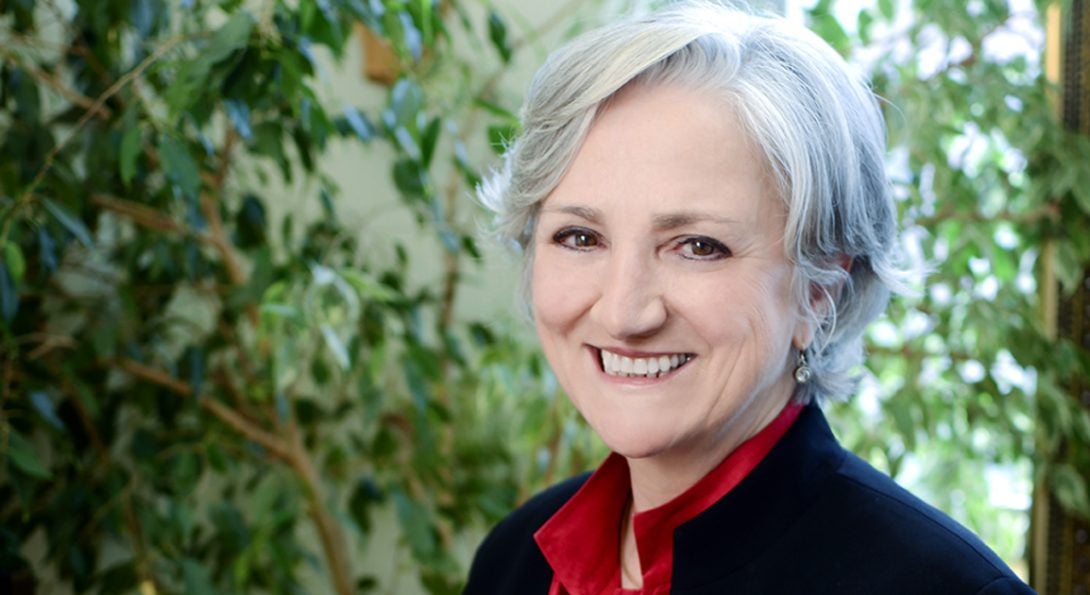UIC Nursing Alumni–Tonda Hughes

Professor emerita, UIC College of Nursing; Henrik H. Bendixen Professor of International Nursing and associate dean for global health, Columbia University School of Nursing
Blazing a trail in sexual minority women’s health studies Heading link
As a young researcher in the early 1990s, Tonda Hughes, PhD ’89, RN, FAAN, wanted to study the effects of alcohol on lesbian women’s health. It was an area with little research and the studies that had been done relied on problematic methods.
Hughes’ advisors discouraged her, saying she might not be able to get funding, get published or earn tenure if she focused on the stigmatized topic.
“My well-meaning advisors didn’t think it was a good idea; that I might jeopardize my career,” she recalls.
Hughes persevered, and 30 years later, she’s an internationally recognized expert in the field of sexual minority (e.g., lesbian and bisexual) women’s health, with more than $25 million in career research funding. She is the founding director of the new Center for Sexual and Gender Minority Health Research at Columbia University School of Nursing, where she has been the Henrik H. Bendixen Professor of International Nursing and associate dean for global health at since 2017.
“The idea of really following your passion—even if it isn’t the most popular thing to do—I think that’s so important and has made all the difference in my life,” she says.
Hughes is UIC Nursing’s 2021 Distinguished Alumni Award winner, the highest alumni award given out by the college.
Lessons from self-doubt and failure
Hughes grew up in rural, southeastern Kentucky, in the foothills of the Appalachian Mountains. Her parents didn’t have much formal education. Her father started working in the coal mines at age 18, but they instilled in their children an “unquestionable respect for education,” Hughes says.
Hughes was interested in nursing from early on, but coming from such a small, bucolic area, she lacked confidence.
“I didn’t think I was smart enough to go into nursing, even though I was in the top 10 of my graduating class, maybe even the top five,” she says.
She started out as a physical education major, but wasn’t happy, and plucked up the courage to study nursing at Eastern Kentucky University. After earning an associate’s degree in 1974 and becoming an RN, Hughes returned to get her BSN. She was allowed to bypass core clinical courses if she could prove her knowledge through “challenge” exams, but she failed the pediatrics exam.
It was a major blow at the time, but “it turned out to be one of the best things to happen to me,” she says.
When she retook the course, the instructor gave Hughes half the students to supervise. Hughes impressed the instructor so much, she was invited to join the faculty after she completed her degree.
“I realized I really loved teaching and that I’d need a master’s degree if I wanted to continue to teach,” she says.
Her master’s degree program in community mental health at the University of Kentucky influenced her interest in women’s health, and she chose UIC for her doctoral degree because of its strong program in that area. Faculty such as Alice Dan, PhD, Denny Webster, PhD, RN, and Beverly McElmurray, PhD, RN, FAAN, were leaders in the women’s health movement, which elevated women’s health beyond reproductive health and recognized women as experts in their own health.
“UIC was really, truly a leader in the women’s health movement in the 1980s,” she says.
Finding gaps; busting myths
As a young researcher at UIC Nursing, Hughes became interested in studying what she called, “the myth of lesbian alcoholics.” She found that many research papers at the time used the same startling statistic: one-third of lesbians were alcoholic. There was just one problem. The original research – which was referenced by subsequent authors – relied on participants recruited at gay bars, a sample that did not reflect the broader population.
“Since then, a major goal has been to produce a more scientifically grounded understanding of lesbian (now sexual minority) women’s use of alcohol,” she says.
In that pursuit, Hughes faced what she calls “bumps in the road,” including being numbered among an infamous 2003 list of more than 200 NIH grantees – most investigating sexual behavior and drug abuse– created by a conservative Christian advocacy group. The NIH reviewed the grants and ultimately determined all were sound.
“Those of us who have known Tonda for many years, know she began this research in the 1990s at a time when there was [almost] no concern or acknowledgement of sexual minority women’s health needs,” wrote Mariann Piano, PhD ‘88, MS ’84, RN, FAAN, FAHA, in her nomination letter. Piano served on the UIC Nursing faculty with Hughes for decades and is now senior associate dean for research and Nancy and Hilliard Travis Professor of Nursing at Vanderbilt University School of Nursing. She is also a UIC Nursing professor emerita and a former Distinguished Alumni Award recipient.
Since then, the field of sexual minority health studies has continued to gain mainstream recognition. Hughes’ early studies have grown into the world’s longest running longitudinal study of alcohol use and health among sexual minority women. In November 2019, Hughes organized and led the first National Nursing LGBTQ Health Summit, bringing together nursing leaders in LGBTQ education, research and practice.
Before joining Columbia, Hughes was a UIC Nursing staple for 27 years, serving as Nursing Collegiate Professor, associate dean for global health, and head of the department of Health Systems Science (now Population Health Nursing Science). She remains professor emerita at UIC Nursing.
“She has had a long-term, outstanding program of research that places her among the premiere nurse-scientists in the U.S. and internationally,” Piano wrote. “Her research has had a major impact on both knowledge and healthcare for sexual minority women.”